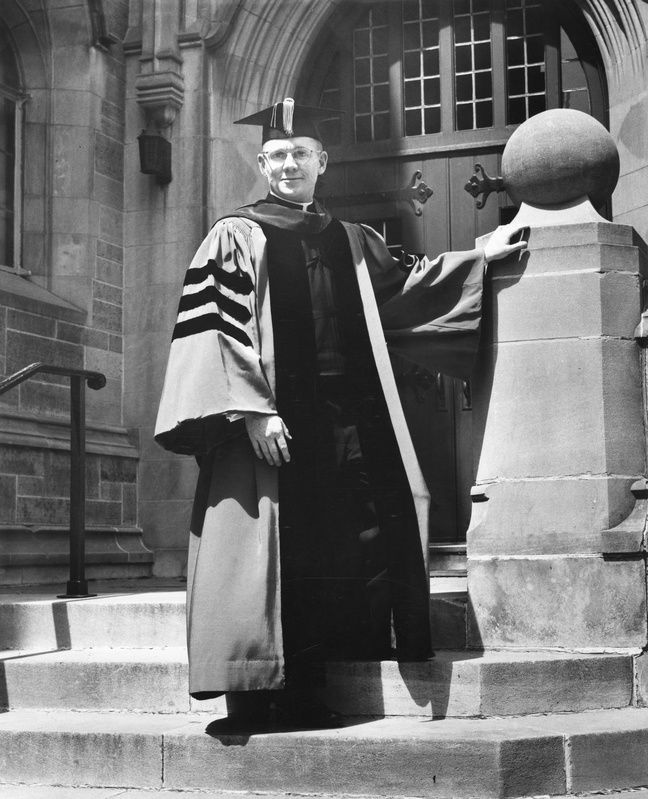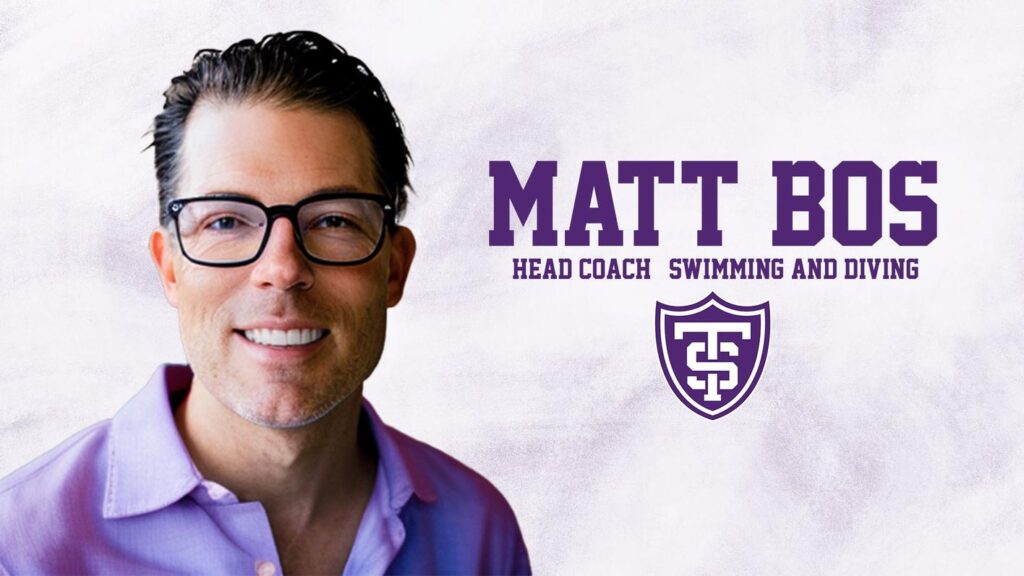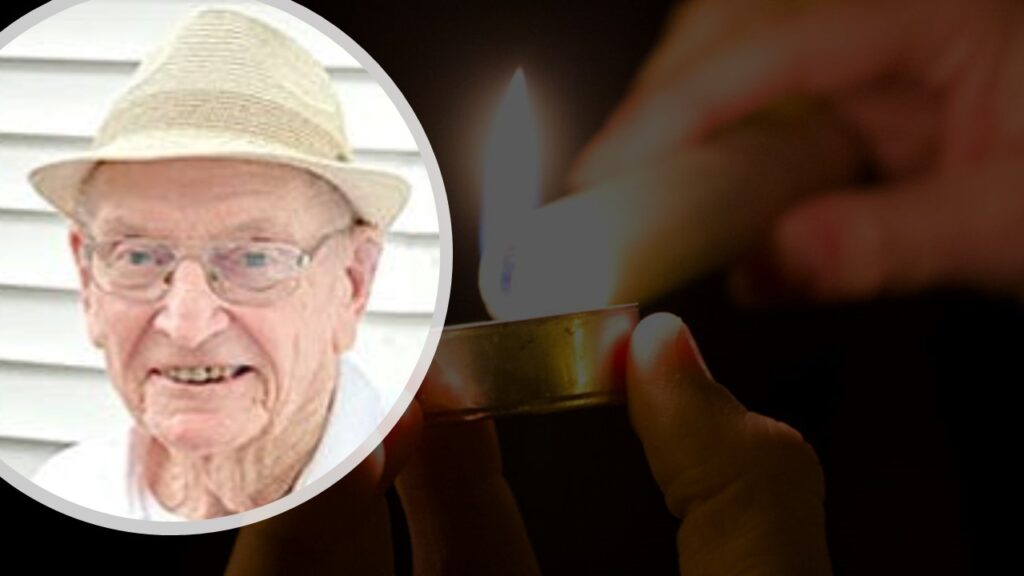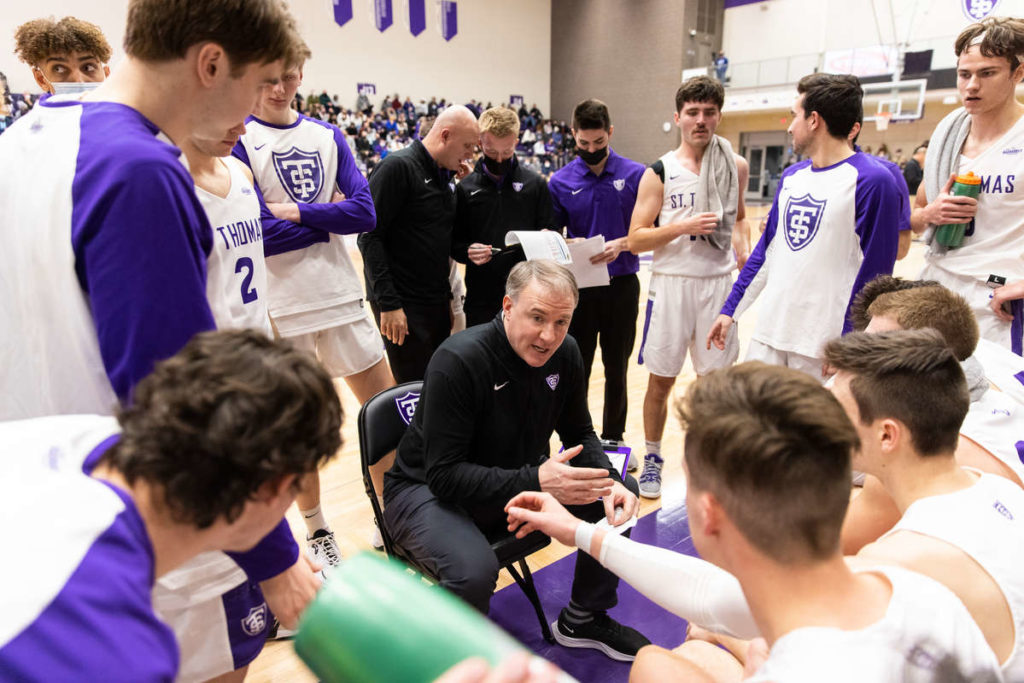Today we celebrate MLK Day, a national holiday celebrated on the third Monday of January in honor of Dr. Martin Luther King Jr. The civil rights leader, Baptist minister and Nobel Peace Prize recipient was born on Jan. 15, 1929, and assassinated on April 4, 1968, in Memphis, Tennessee, at age 39.
Dr. King is celebrated for advocating nonviolent measures to advance U.S. civil rights. His legacy was inspired by both his Christian faith and the peace-oriented activism of Mahatma Gandhi.
There is an interesting connection with Dr. King and St. Thomas.
On a Sunday afternoon in March 1965, St. Thomas’ then-college president, Father James Shannon, received a telegram and later took a phone call from Dr. King, who invited him to attend a funeral that next afternoon in Selma, Alabama. The services would honor a white minister murdered because of his civil rights commitment and activism.
The victim, James Reeb, coincidentally was a St. Olaf College graduate. A Unitarian pastor working to support civil rights, Reeb was beaten to death, allegedly killed by white segregationists angered at his participation in the march from Selma to Montgomery. Three suspects were tried for the murder but were acquitted by an all-white jury. The case officially is called unsolved.
Dr. King's call to Father Shannon was in search of a prominent Catholic leader to come to Selma for the funeral as a show of interfaith unity. Father Shannon had just been designated as a bishop-elect and was to be formally given the title of bishop in March 31 ceremonies, three weeks later.
"(Dr. King) called me on a Sunday afternoon and asked me to come down to Selma for an ecumenical service the following afternoon," Shannon explained in an interview with Mpls.St.Paul magazine in the year 2000.
"I said that would be difficult, even with all the goodwill in the world. I gave him some other names – a cardinal and archbishop who were closer to Alabama – but he said he had tried them and they couldn't come. I wasn't even officially a bishop yet. I'd been named a bishop but not yet ordained. I was a nobody. Just a kid. But he needed someone from the Catholic community. He called me because he'd run out of names. Finally, I said I didn’t think I could make it, but I would try. And I did. And I’m glad."
Father Shannon was able to book a flight for that Sunday night and join Dr. King for a show of unity at Monday's funeral. Three priests on his flight to Atlanta also were traveling to attend. Arriving after midnight – and with no flights available to Montgomery – the group rented a station wagon to make the five-hour drive to Selma.
Shannon wrote in his autobiography that the funeral was held among extreme tension with high security. He wrote that their rental car was tailed after they crossed into Alabama, and a man confronted them at a gas station and asked about their travel plans.
"Outside, police officers holding German shepherd attack dogs on leashes stood guard," Shannon wrote. "The chapel was jammed. I've never been in a crowd so tight. As we waited (for Dr. King's arrival), I became aware for the first time that we might be in some danger. The crowd, the warm day, the watchdogs, the armed guards, the tension in the air made me think we were close to a flashpoint."
He recalled that Dr. King's subsequent arrival and his thoughtful eulogy brought a calm to the tragic ceremony.
"We all rose, joined hands and began to chant, 'We shall overcome,' " Shannon recalled. "(The other priests) and I spoke briefly (before Dr. King), citing in different ways the categorical imperative of our Christian conscience which bade us to protest the murder of James Reeb and the systematic suppression of the civil rights of black citizens."
Shannon later wrote that King's tone and heartfelt words created "one of the most moving experiences of my life."
"Dr. King's moving address uttered not one word of rancor," Shannon wrote. "He praised the personal generosity and courage of James Reeb and told us that all members of the human family are equal in the eyes of God and equally deserving of all the rights promised in the Constitution. It was a healing message, full of hope and kindness. He was a powerful speaker but a most gentle man. Listening to him and his words of our concern for one another, I marveled that some police surrounding the chapel were, even then, wearing large buttons labeled with one ominous word, 'Never.'"
Three years later, Father Shannon joined Dr. King and two rabbis at a ceremony in Washington, D.C., at the Tomb of the Unknown Soldier in a peaceful protest to the escalating Vietnam War. Fearing violence and counterprotests, federal authorities allowed the contingent to assemble and march only if they agreed to appear in silent prayer and refrain from speeches. More than 300 individuals marched in rows of six to the memorial site, where they shared silent reflection.
Eight weeks later, Dr. Martin Luther King Jr. was assassinated in Memphis.
An interesting life
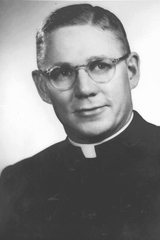
James Shannon, 12th president of the College of St. Thomas (1956-66)
Shannon was named president of St. Thomas in 1956, at age 35, while a faculty member in the Department of History. The South St. Paul native was earlier recognized as class valedictorian at Saint Thomas Academy and again here when he graduated in three years from St. Thomas. In addition to his St. Thomas undergraduate and his seminary degrees, Shannon held a master's degree from the University of Minnesota and a doctorate from Yale University.
Shannon served as St. Thomas president from 1956-66. In 1968 he resigned as a bishop and left the priesthood. He went back to school to pursue a law degree and had a second career leading foundation fundraising work with General Mills, among other local groups. Late in his retirement years, Shannon authored his autobiography, Reluctant Dissenter. When Shannon died in 2003 at age 82, his obituary warranted a bylined story with national outlets, including the Los Angeles Times.
This 12th president of St. Thomas worked with Pope Paul and stood alongside Dr. King on two memorable occasions. Yet he also had another private visit with a larger-than-life faith leader, this one in 1968. Father Shannon was asked to drive Mother Teresa from the MSP Airport to a local convent, and days later to take her back to the airport. They shared conversation.
William Swanson of Mpls.St.Paul Magazine pointed out in a 2000 profile that Shannon remembered Mother Teresa for “her gentle voice” and “her heavy wool sweat socks peeking out of her sandals.”
